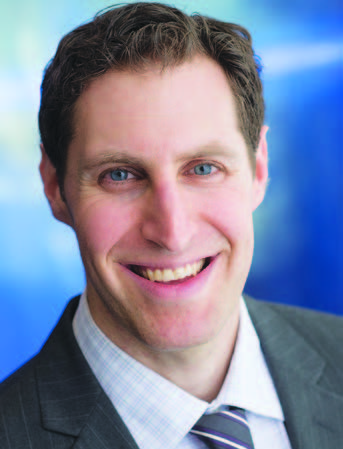The one thing is
 |
| Dr Eric Cadesky |
Through the clacking of keyboards and rustling of papers, I hear a sigh emerge from the confluence of doctors in the backroom.
“Did anyone else just get 100 new results to check? I was up all night going through reports and labs, and now I’m behind again. I swear half of these I’ve seen before, but I’m still responsible for them each time. If I could just change one thing, it would be to find out what happened to the EMR that was supposed to make my life easier.”
My ears perk up.
“At least you’re getting those labs. It feels like half the time patients come in, I have no idea what the ‘red pills’ are that someone else prescribed. Or why a TSH was ordered for the fifth time this month. What happened to EMRs talking to each other? Wasn’t interoperability supposed to be a thing?”
“Well, it’s better than what we get by mail. Look at all these forms overflowing on my desk. I went to medical school to help people, not push paper. Forms for consults. Forms for medications. Forms for work and school and camp. A lot of the time, the insurance companies want the patients to pay, and the patients can’t pay because the insurance company is holding out. My one thing is that I just want to spend my time being a doctor and not a data clerk.”
The keyboard clacking calms.
“At least those forms might help someone get through a tough time. Tell me what good all these pharmacy fax refill requests do to advance care? We have robotic surgery and gene therapy, and yet we still communicate with technology from the 1840s. If I could change one thing, it would be to have communication tools that actually help me care for my patients.”
By now most chairs have swiveled from our stations to face each other.
“I know it’s complicated, but if I could change one thing, it would be to use all our trained doctors, nurses, and technicians to cut down wait times. Have you seen how long it takes to get an echocardiogram these days? And don’t get me started on ‘non-urgent’ surgeries. As they say, Canada waits.”
“Maybe all this waiting explains why I’m at work so late. If I leave before dictating all my notes and returning all my calls, then I feel guilty about letting my patients down, who are waiting by the phone. If I stay late, then I feel guilty about missing my family. My one thing would be to leave here, done and on time.”
I listen intently as more voices join in the conversation.
“Try balancing that with having to pick up the kids and get dinner ready. Then get all of my EMR and paperwork done.”
“I would love to have a steady place to come home to. But I’m being ‘renovicted.’ Every time I think I’m getting closer to a down payment, the market jumps out of my reach again. My one thing would be that a doctor can afford to live in the city they want to work in.”
Eyes turn to me.
“Eric, aren’t you involved with Doctors of BC? What’s going on to help us?”
I say that they’re right.
That practising medicine should be good for our health too.
That we need to channel our frustrations.
That now is the time.
We have local innovation for consultations and advanced access and 24-7 imaging and digital health, all begging to be scaled. We have a new governance structure and a chance to build a culture of trust and inclusion and professional unity. We are preparing for negotiations and asking for feedback at every stage. And while we may not immediately create the revolution we want, we can start the momentum: The future happens slowly and then all at once.[1]
So, what is your one thing to change? I’m here and I’m listening.
—Eric Cadesky, MD
Doctors of BC President
References
1. Kelly K. The inevitable: Understanding the 12 technological forces that will shape our future. New York, NY: Penguin; 2016.


It’s such s complex problem. Women wait too long for investigation for breast issues, including both screen detected abnormalities, and palpable abnormalities.
Not enough fellowship – trained radiologists, and not enough resources to use their skills most efficiently.
Some waste in the system, but no one policing that to reduce it.
Not enough funding for the places that do complex cases , And resource allocation by people who don’t work in the field, and don’t necessarily use the funds where most needed.